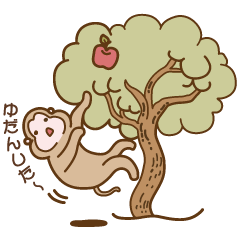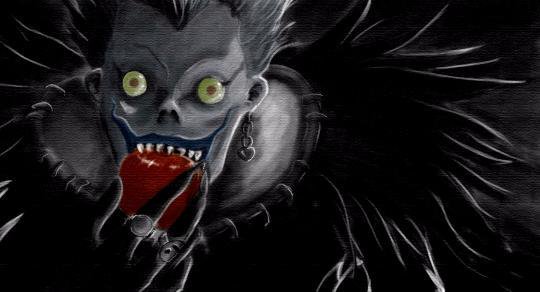Japanese is a language filled with a ton of ことわざ (諺), or “kotowaza”, meaning “proverbs”. They can take on different forms– some are 四字熟語 (よじじゅくご) or “Yojijukugo”, which translates to “four character idiom”, while others are expressions. I thought I should write about some of these kotowaza you might stumble across or hear while studying Japanese. I included some common ones, and also a few I particularly like.
Here are 17 Japanese proverbs
① 猿も木から落ちる
(さるもきからおちる)
Even monkeys fall from trees.
Even the monkey who is a master of climbing will from time to time fail; everybody makes mistakes.
② 弱肉強食
(じゃくにくきょうしょく)
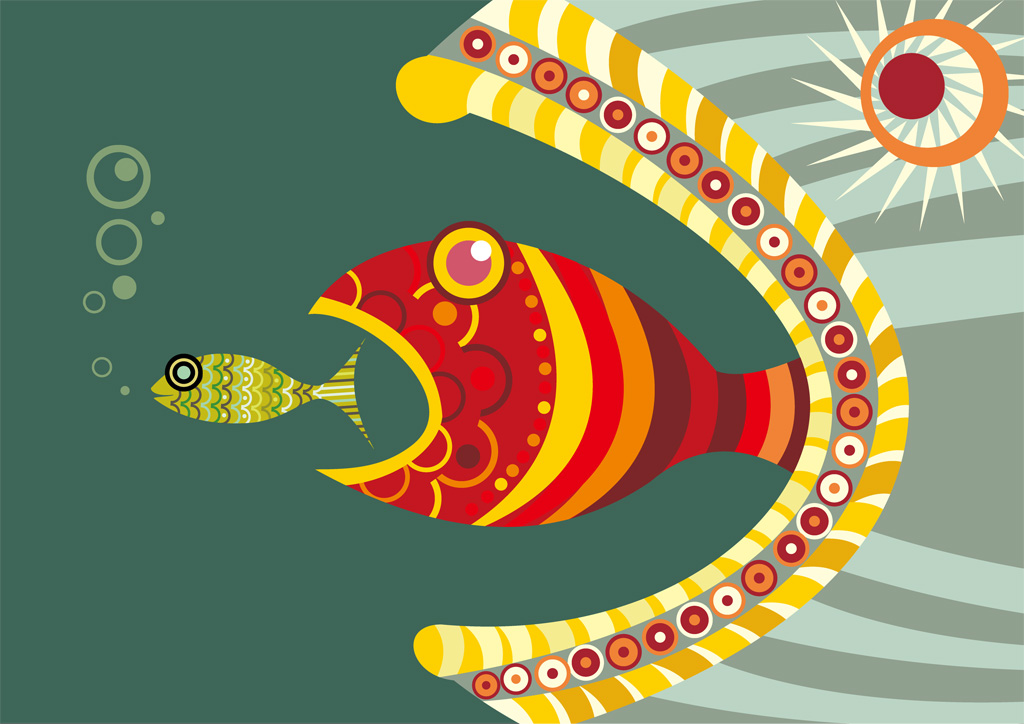 Weak meat, strong eat.
Weak meat, strong eat.
In other words: “survival of the fittest”.
③ 能ある鷹は爪を隠す
(のうあるたかはつめをかくす)
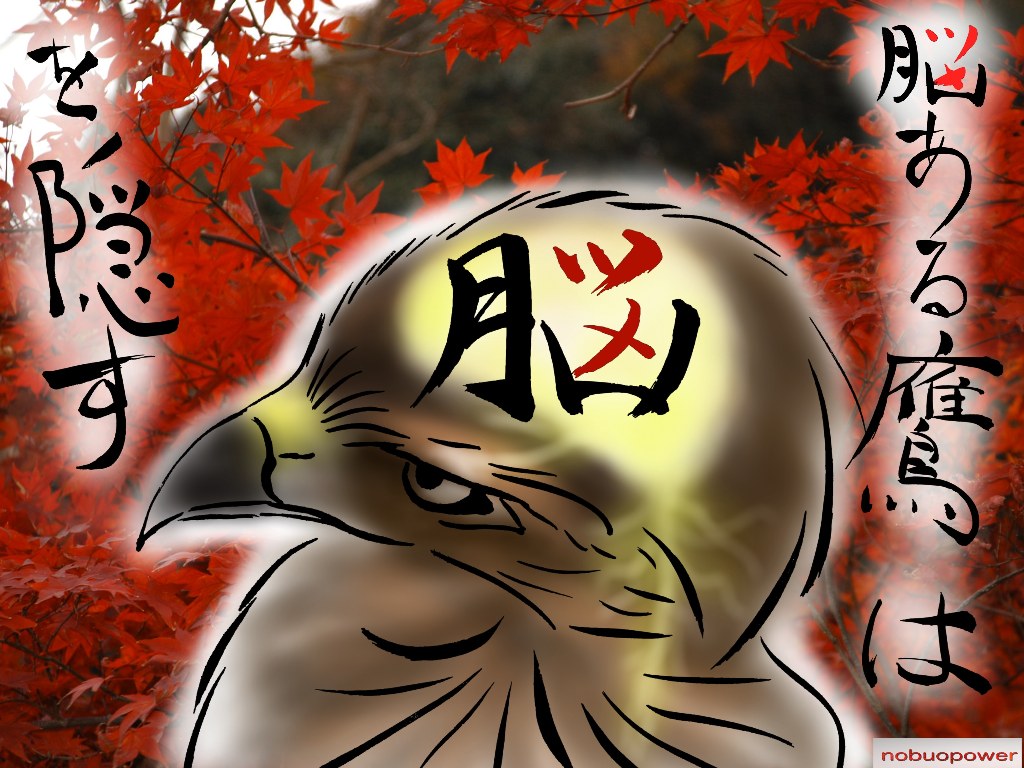
A talented falcon keeps it’s claws concealed.
A person of talent doesn’t (shouldn’t) boast about everything they can do. Brilliant graphic by nobuopower, they put a spin on the kotowaza and used the kanji for “brain” instead of “talent”, which is also pronounced のう. Notice how ツメ (爪) is highlighted in the kanji for brain (脳).
④ 百聞は一見に如かず
(ひゃくぶんはいっけんにしかず)

Hearing 100 times doesn’t compare to seeing once.
This is similar to the English expression “seeing is believing”.
⑤ なるようにしかならない
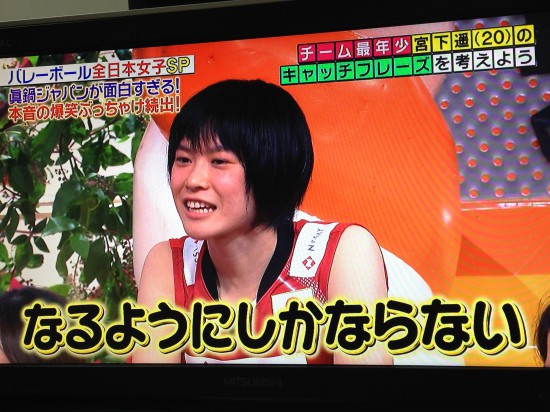
Nothing will become except the way it will become.
Everything works out the way it works out. This reminds me of the expression “仕方ない”, and is sort of like the English expression “whatever will be, will be” or “whatever happens, happens”.
⑥ 花より団子
(はなよりだんご)
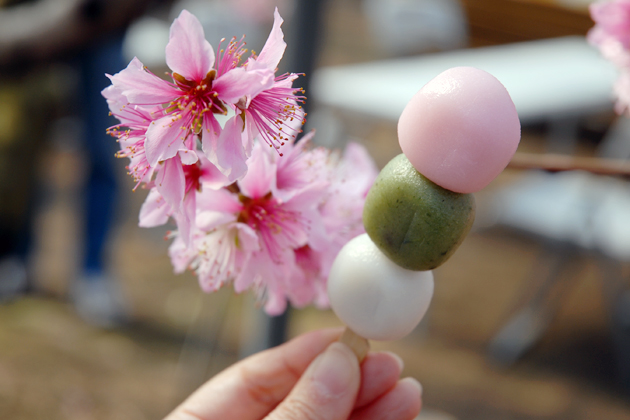 Dango instead of flowers; More than flowers, dango.
Dango instead of flowers; More than flowers, dango.
This expression indicates going for practicality over aesthetics, to go for the dango (a sustenance), over flowers (beauty).
⑦ 初心忘れるべからず
(しょしんわすれるべからず)
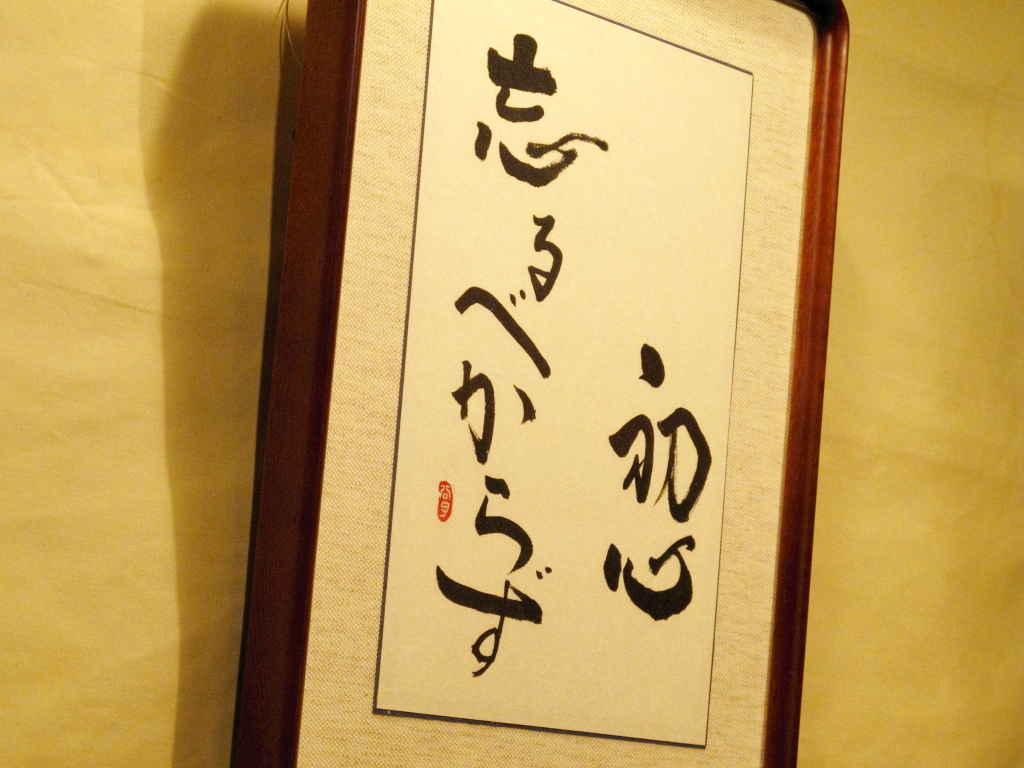 Don’t forget the original spirit you had (when you began something).
Don’t forget the original spirit you had (when you began something).
Everyone is always excited when they embark on something new, and sometimes that feeling may eventually fade. You should remind yourself of the high feelings you had when you began something, and never lose sight of them.
⑧ 一石二鳥
(いっせきにちょう)
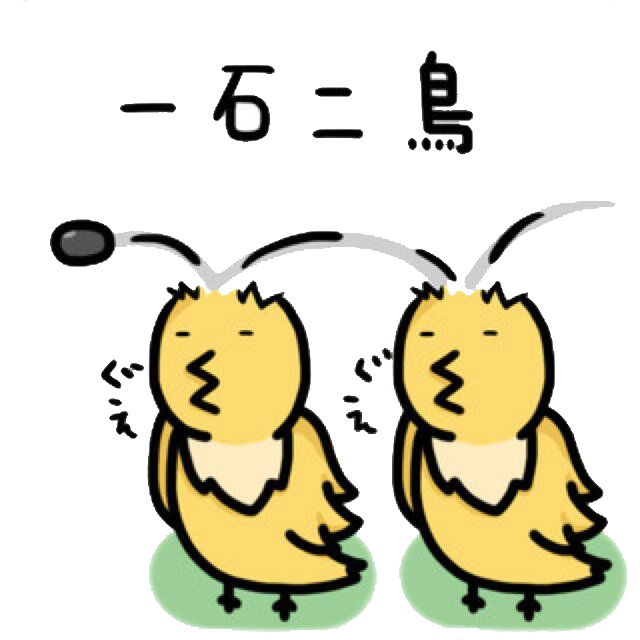
One stone, two birds.
Just like the proverb in English but backwards, “two birds with one stone”.
⑨ 猫に小判 (ねこにこばん)
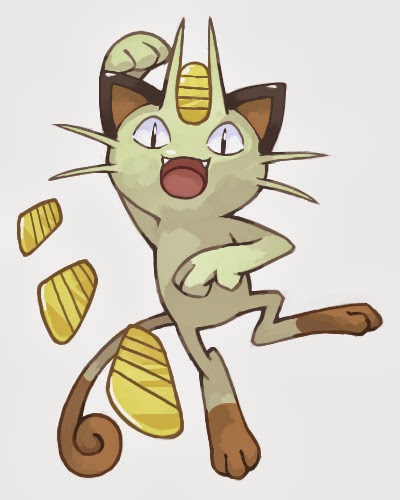
Coins to a cat.
The koban is an old Japanese coin currency, so this one translates to “coins to a cat”. It indicates how some things may be useless to one who doesn’t know it’s true value. I believe the Pokemon character “ニャース” was designed after this kotowaza. (Yes, I played Pokemon as a kid…)
⑩ 出る杭は打たれる
(でるくいはうたれる)

The stake that sticks out gets hammered down.
I think this might speak for itself. Japan is a conformist society, and this is an expression to remind that sticking out could lead to bad results, like the stake that is sticking out slightly higher, which is the one the hammer will strike.
①① 七転び八起き
(ななころびやおき)
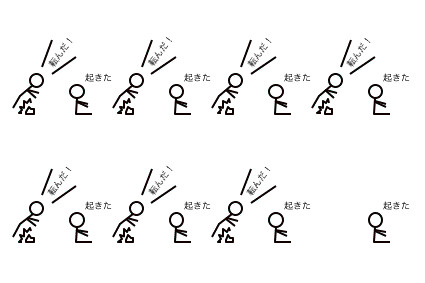 Fall down seven times, stand up eight.
Fall down seven times, stand up eight.
As the image above indicates, it’s not actually possible to stand up eight times if you’ve only fallen seven, but whatever, it sounds more powerful with eight. This is much like the English proverb “If you fall off your horse get right back on”.
①② 二度あることは三度ある
(にどあることはさんどある)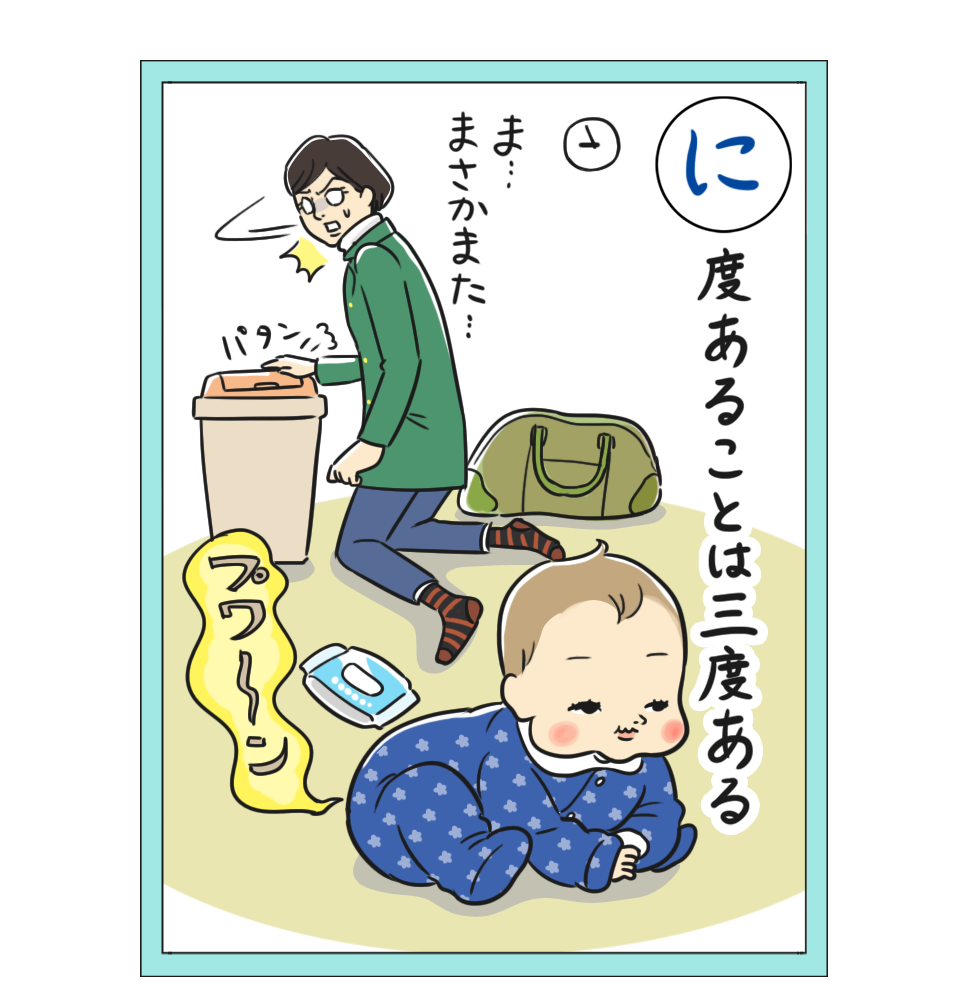 What happens two times will happen three.
What happens two times will happen three.
This is a lot like the English expression “history repeats itself”.
①③ 下手な鉄砲も数撃ちゃ当たる
(へたなてっぽうもかずうちゃあたる)
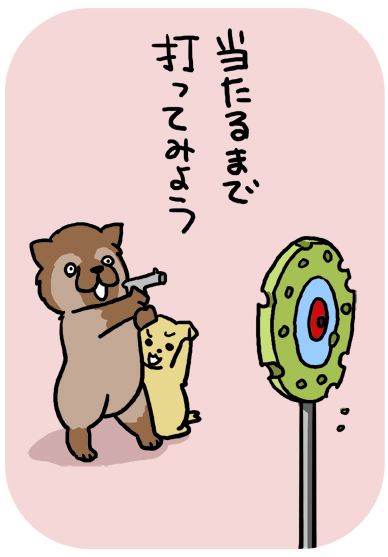
Even the unskilled gun will hit the mark with enough shots.
With enough tries regardless of skill, you will succeed.
①④ 習うより慣れろ
(ならうよりなれろ)
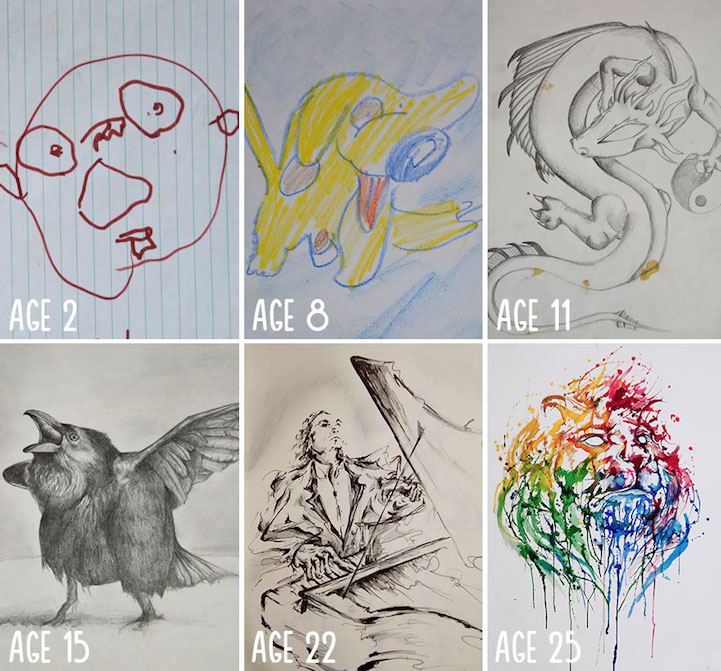
More than learning, become accustomed.
It’s best to learn from actual experience; practice makes perfect.
①⑤ 一生懸命
(いっしょうけんめい)
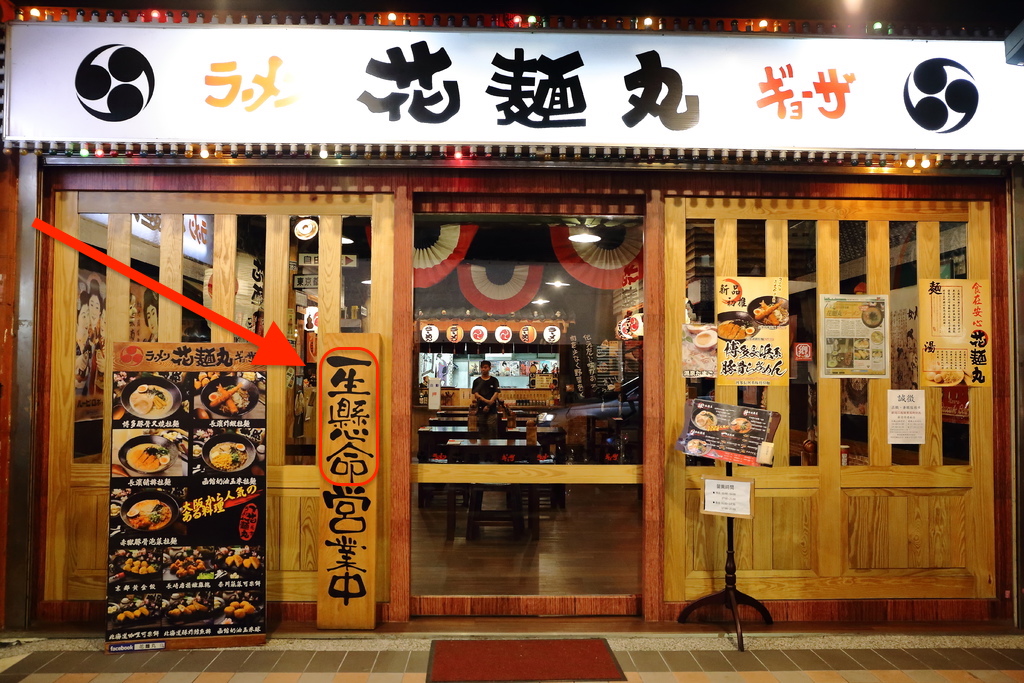
This one’s not exactly a kotowaza, but is a 四字熟語. It was originally spelled (and still can be) 一所懸命(いっしょけんめい), and means to try your very hardest.
①⑥ 塵も積もれば山となる
(ちりもつもればやまとなる)
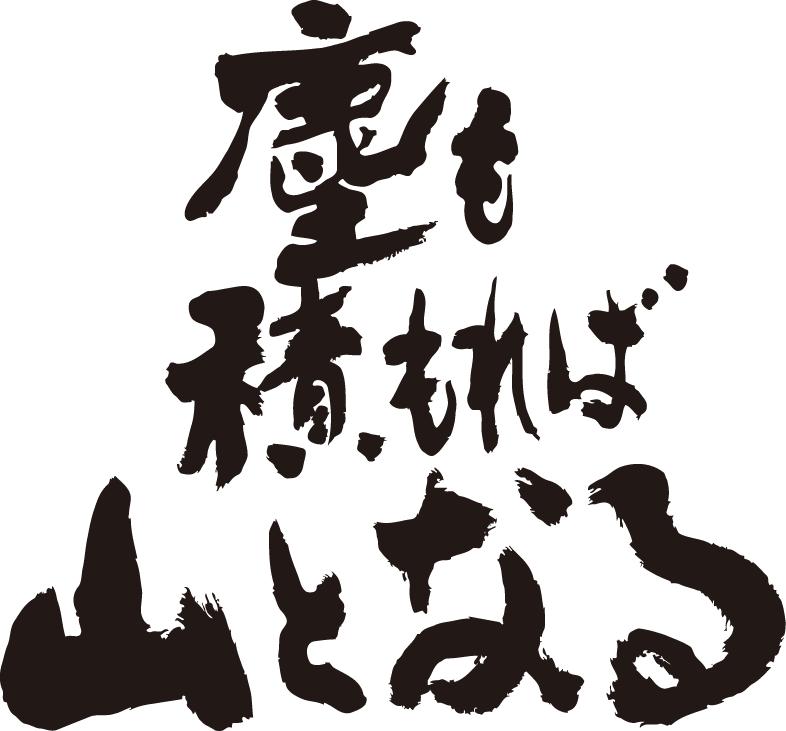
If dust piles up it becomes a mountain.
Every little bit counts; a bit like the English proverb “a penny saved is a penny earned”.
①⑦ 来年の事を言うと鬼が笑う
(らいねんのことをいうとおにがわらう)
If you talk about next year, a demon laughs.
No one can predict the future.
Write and learn all the words used (and the proverbs themselves) on Skritter: https://skritter.com/vocablists/view/5472582707576832
{“type”:”block”,”srcClientIds”:[“e8397de7-f5b0-422b-acd5-2b50794c41c2″],”srcRootClientId”:””}


